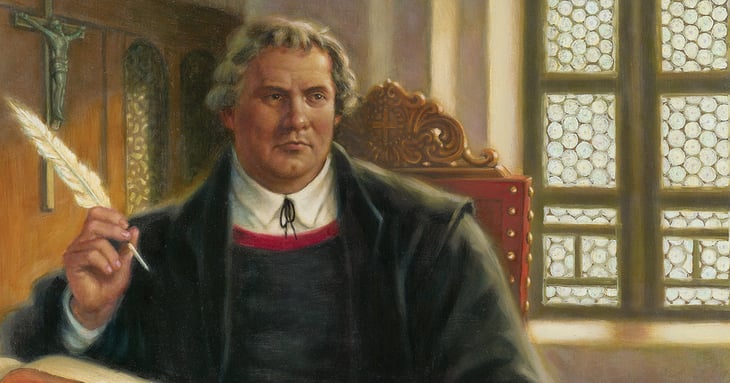What Does a Good Law-Gospel Sermon Look Like?
This blog is excerpted from an article by Rev. Carl C. Fickenscher II that was published in a previous edition of Concordia Pulpit Resources.
So much has been written on the dynamics of Law and Gospel—by classic authors such as Luther and Walther as well as more contemporary ones such as Gerhard Aho, Richard Lischer, Herman Stuempfle, and Gerhard Forde—that Law-Gospel preaching might be evaluated from any number of perspectives. In this study, though, seven criteria have been distilled from the various sources. While these are not exhaustive, they will be sufficient to determine whether meaningful differences in Law-Gospel effectiveness exist among sermon forms. In addition, it is hoped that the criteria can be guidelines which we preachers use personally to sharpen the Law and Gospel of our own messages.
The Gospel Assumed Is the Gospel Denied
This blog is excerpted from an article by Herbet C. Mueller Jr., published in a previous edition of Concordia Pulpit Resources.
Preaching on Texts That Are Light with Gospel
One of the challenges that pastors face as they prepare sermons is what to do with texts that are heavy on Law and light on Gospel. As I look at the four assigned lectionary texts for each preaching occasion, I am often drawn toward preaching texts where the Gospel predominates quite clearly in the text. Perhaps other pastors can relate. If the text has overt, obvious Gospel, it becomes much easier to move from the Gospel in the text to the Gospel for the congregation. But how do we handle texts that are light on Gospel? Texts that do not blatantly point us to the Good News of Jesus? Below are two ideas.
Free from Sin through Christ
In recent years, we have seen rapid shifts in our culture. These can leave us wondering about our condition as we stand before God. Gene Edward Veith Jr. discusses this question in his book The Spirituality of the Cross, third edition. Read an excerpt below.
Martin Luther on the Distinction between Law and Gospel
For the first time in English, a truly scholarly translation of Luther’s most famous disputation, referred to as The Antinomian Disputations, is available as part of the newest volume in the ongoing Luther’s Works, Volume 73. Read an excerpt from the introduction below about the doctrines of Law and Gospel.
Luther’s Teaching on Law and Sin
Martin Luther was a phenomenal theologian. He wrote many theses during his lifetime, and he also presided over and responded to many of the academic disputations of others in order to discuss their points and validity. A new edition of Luther’s Works, Volume 73 on disputations, dives more deeply into Luther’s arguments from December 1537 to July 1545. Read an excerpt below from the newest volume concerning arguments on Law and sin.
Preaching the Gospel Against Three Enemies
As Lutherans, we preach and teach the biblical text. Whether we choose one of the four readings from the lectionary or preach through a sermon series, the text drives our preaching. As we prepare Bible studies, even if they are topical, the text of the Scriptures must always lead and inform our teaching.


















